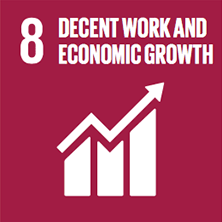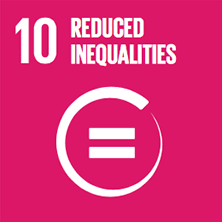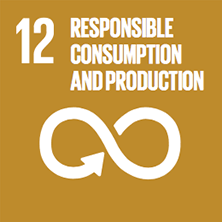Sustainabilty
Our contribution to Sustainable Development Goals
The UN Sustainable Development Goals were established by all the United Nations member states with the intention of working towards a more sustainable and equal world. It calls upon companies to use innovation, technology, and creativity to address developmental challenges and opportunities that companies can have an impact on.
ECGA members review and revise their sustainability strategy on continues basis. Our sector wants to leverage opportunities and positive sustainability effects of the activities and the products and even more strategically and further reduce negative impacts.
ECGA secretariat has gathered the examples of actions undertaken by its members towards SDGs and divided them three categories: Environmental, Social and Governmental. Below you will see the general structure applied. If you wish to learn more about the concrete examples, please contact ECGA Secretariat.

4
Quality education
While quality education is accessible to all European citizens, there is a need for wider society learning about the importance of carbon and graphite products. The sector provides a range of employment opportunities, invests in local traininigs or extends workforce educations and training to local communities and cotractors.

5
Gender equality
Most carbon and graphite companies in Europe have clear statments supporting gender equality, women filling visible leadership roles, processes for ensuring a safe workplace for women, as well as official processes for recruting and retaining female employees.

8
Decent work and economic growth
Carbon and graphite companies collaborate with governments and their supply chains to enhance broader economic development opportunities and invest in various ways to become economically, productive.
10
Reduced inequalities
The European Carbon and Graphite industry promotes diversity and is committed to achieving and maintaining a diverse and inclusive workplace.


12
Responsible consumption and production
The European carbon and graphite industry has been contributing substantially for decades to the Circular Economy goals by providing industrial goods to recycle steel.
13
Climate action
Carbon and graphite will be decisive for a transition to a Low-Carbon society. The European carbon and graphite industry has adopted ambitious carbon management policies and targets and is providing products to reduce, eliminate and offset emissions in our daily lives.
16
Peace, justice and strong institutions
The European carbon and graphite industry is a sector complying to the jurisdictions it is operating in. It is internationally trading and in transparent dialogue with its supply chains and customers creating trust and confidence. The European carbon and graphite industry is also supplying critical raw materials and products for the defense industry which is sometimes needed to keep peace.
17
Partnership for the goals
The European carbon and graphite industry is a very international sector and through its companies and associations is engaged in many partnerships to achieve collaborative progress on the SDGS.Issues
TYPE OF ACTIONS
- Code of conduct
- Corporate strategy
- Anti-corruption and bribery
- Collaborative partnerships
- Risk management
- Operating excellence
- Reassessing the companies’ approach
- Consulting, technical service
GOVERNANCE ISSUES
Our industry considers a good corporate governance to be a prerequisite for positive value creation and trustworthiness. In order to secure good and sustainable corporate governance, the companies strive for environmentally friendly and healthy business practices, reliable financial and non-financial reporting and strong compliance culture.
• Code of Conduct
- Companies operate under the Conduct which is an integral component of their management and corporate culture, and it sets standards for responsible, legally compliant behaviour.
• Corporate Strategy
- Sustainability is integral to our members’ corporate strategy and designed to ensure a resilient portfolio.
• Anti-corruption and bribery
- Companies demand and promote transparent, legal processing of all of company’s transactions to create trust and secure business relationships over the long term.
• Collaborative Partnerships
- ECGA members are companies with a long tradition and rely on long-term, good relationships with customers and suppliers. Customers and suppliers are our partners, with whom we jointly pursue success. This is another important contribution to a sustainable future;
- Companies work with other industries, manufacturers and suppliers to deploy solutions at-scale.
• Risk management
- Full compliance with all applicable environmental regulations wherever companies operate;
- Regular performance of risks identification, including potential risks associated with accidents and disasters, violation of laws, human resources and labor, business activities, supply chains, external environment;
- Our products and production have an environmental footprint in all steps of the value chain. Elimination of waste is one of key strategies for successful operations. Our environment, health, and safety (EHS) policy cover actions on energy and resource utilization, environmental impact through emission to air and discharge to water and waste reduction and waste management. Our goal is to reduce generation of waste by good process control.
• Operating Excellence
- The commitment to operating excellence, including personal and process safety, environmental stewardship and asset reliability, is key to meeting the sector’s strategy of growth and return on investment.
• Reassessing the companies’ approach
- Reviewing and reassessing performance in all areas is an integral part of each company’s operational practice.
- Active participation in global technical development, promotion of new innovative technologies and managerial practices as well as knowledge sharing in the fields of science, technology and innovation is a must to maintain international competitiveness.
• Consulting, technical service
- The sector applies the same standards to its suppliers, consultants and technical services.

